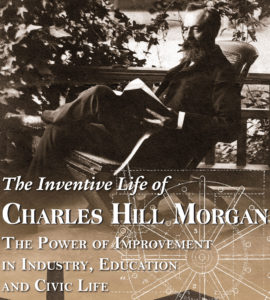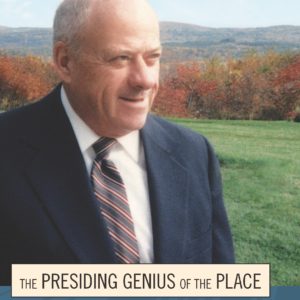Books
 When Charles Hill Morgan learned how to use specialized drafting tools in the 1840s, his professional-grade compass precisely centered measurements for foundations and steam engines. His mastery of these tools led to a future of vast new possibilities. The strength of his ideas and the success of his inventions took him on a path that led from Lancaster’s Factory Village in central Massachusetts to the courts of Europe.
When Charles Hill Morgan learned how to use specialized drafting tools in the 1840s, his professional-grade compass precisely centered measurements for foundations and steam engines. His mastery of these tools led to a future of vast new possibilities. The strength of his ideas and the success of his inventions took him on a path that led from Lancaster’s Factory Village in central Massachusetts to the courts of Europe.
In the span of 80 years, Charles would go from living hand to mouth in Shrewsbury, Massachusetts to taking tea at Windsor Castle with the Queen of England.
His life also reflected a strong moral compass, centered around church, family and service to others while running a Philadelphia paper bag business, overseeing the world’s largest producer of barbed wire, and then founding his own steel rolling mill company in Worcester, Massachusetts.
Charles Morgan’s life journey serves to personalize the early development and subsequent successes of the American industrial revolution — a time in history when the power of ideas coupled with mechanical ability fueled those with a strong desire to find new solutions to old problems. His struggles, first to gain the technical knowledge and ability, and then to apply them in a commercial setting with only limited capital, echo the experiences of generations of American innovators.
Armed with patents, an ultimately, a solid business built on his reputation for quality and integrity, the life of Charles Hill Morgan demonstrates a 19th century model of entrepreneurial success in the face of daunting odds, in a time when technological advances first provided a competitive advantage over longstanding methods and practices.
Buy Now
 Careful listeners in 1967-68 “could hear the distant rumbling of the earthquake that was to encompass WPI,” wrote William R. Grogan. That earthquake became the WPI Plan, a project-based approach to technological education decades ahead of its time.
Careful listeners in 1967-68 “could hear the distant rumbling of the earthquake that was to encompass WPI,” wrote William R. Grogan. That earthquake became the WPI Plan, a project-based approach to technological education decades ahead of its time.
Among the visionary faculty members who fashioned the Plan, Bill, as WPI’s first dean of undergraduate studies, led its implementation, steering it through internal and external threats, and oversaw its continuous reinvention.
His work on the plan capped a remarkable career as a Navy officer and consultant, celebrated educator, patent-winning engineer, and longtime advisor and leader for Phi Kappa Theta fraternity.
Bill’s almost intuitive ability to motivate others to effect change informed his legendary leadership skills. His genuine interest in everyone he met enabled him to improve lives and organizations and inspire loyalty in legions of students, fraternity brothers, friends, and colleagues. The Presiding Genius of the Place chronicles Bill’s singular career and examines the experiences and encounters that shaped his long and eventful life.